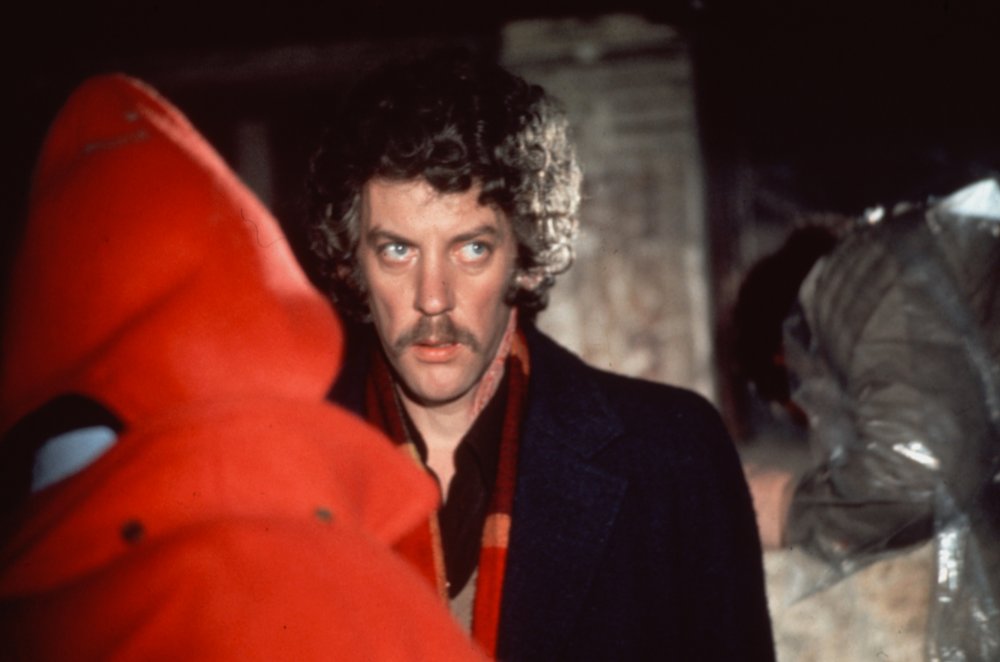
“Nicolas Roeg is a chillingly chic director.”
– Pauline Kael
Born in 1928, polymath filmmaker Nicolas Roeg – who turns 90 on August 18th of this year – began his cinematic career as a camera operator (early credits include Ken Hughes’s The Trials of Oscar Wilde [1960] and 2nd unit photographer on the David Lean classic Lawrence of Arabia [1962]), before moving on to being a cinematographer (François Truffaut’s Fahrenheit 451 [1966], and Richard Lester’s Petulia [1968] rank amongst his most noted works as DP) and then later, of course, as composer, editor, writer, and director.
“When I first encountered cinema it was with a sense of wonder,” Roeg told Time Out in an interview back in 2006. That sense of wonder was evident in the first film he helmed as director, the narrative-shattering, censors-be-damned arthouse exercise/crime drama Performance (1970).
Much of what’s present in Performance (which was co-helmed by Donald Cammell) would come to characterize all of Roeg’s finest films; a narrative shell game of skewered chronology; elliptical and often jolting representations of fleeting memories; nightmarish variegations of sound and image, often kaleidoscopic abstractions and juxtapositions like shiny smashed glass once used to reflect the subconscious now reconstituted into Roeg’s expressive idiosyncratic style.
An almost immeasurable influence on many current mainstream filmmakers, particularly those with an experimental angle; Danny Boyle, Gaspar Noé, François Ozon, Lynne Ramsay, Ridley Scott, Steven Soderbergh, and Ben Wheatley, to name just a few.
The following list examines Roeg’s feature films (PLEASE NOTE: absent from this ranking are his numerous shorts, made for TV projects, and Aria, a 1987 anthology film he contributed to), while also elaborating briefly on the societal impact of his considerable and often celebrated works. If Roeg is a new discovery for you, than treasures await, and if he’s already a name very familiar for you, perhaps revisiting some of this marvellous work is in order?
“Fierce, uncompromising, iconoclastic, dazzlingly original, [Nicolas Roeg] is British film’s Picasso.”
– Danny Boyle
13. Two Deaths (1995)
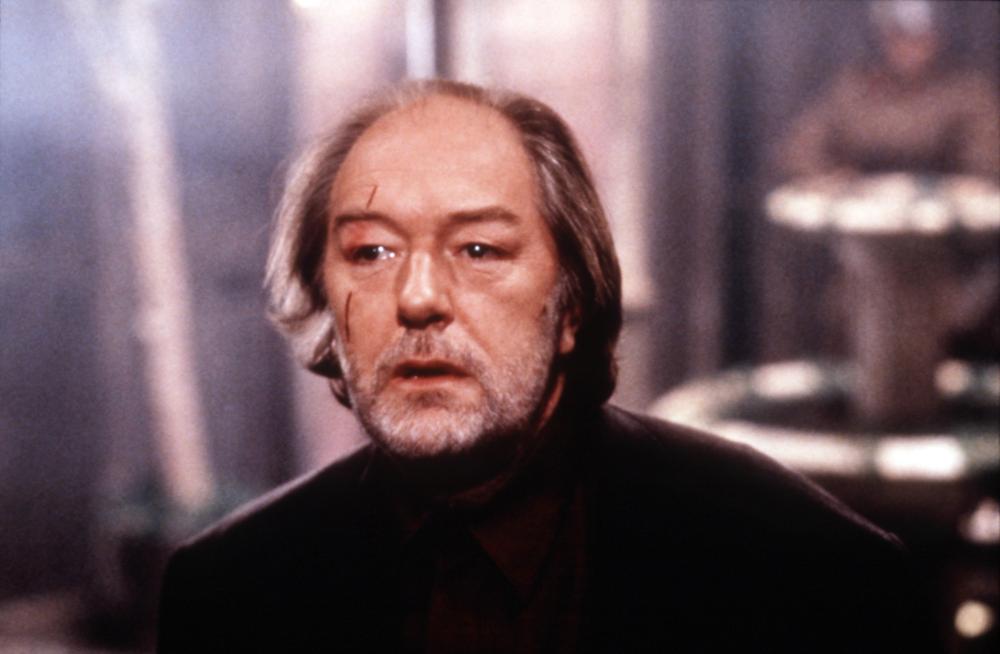
Adapted from Stephen J. Dobyns’s 1988 novel “The Two Deaths of Senora Puccini”, Roeg’s dialogue-heavy film relocates the action from Chile to Romania, amidst a violent revolution running rampant in the streets, spurred by Communist dictator Nicolae Ceaușescu, near the end of his reign. Running contrary to the upheaval outside is the lush mansion interior of the hedonistic doctor, Daniel Pavenic (the always excellent Michael Gambon), who’s hosting his annual dinner party for his dozen closest friends.
As the revolution rages, only three of Pavenic’s friends are able to make it to the mansion where, as events often do in a Roeg film, discourse turns to sexual obsession. Pavenic, it’s revealed, has a very shocking and psychologically disturbing, not to mention unhealthy, relationship with his house servant, Ana Puscasu (Sonia Braga).
Largely a chamber piece structured around a startling and lengthy conversation, Two Deaths should be more engaging than it ultimately is. Smartly directed, and with strong performances, it’s a relentless and often unruly picture, and sadly only a minor one in Roeg’s otherwise remarkable canon.
12. Puffball (2007)
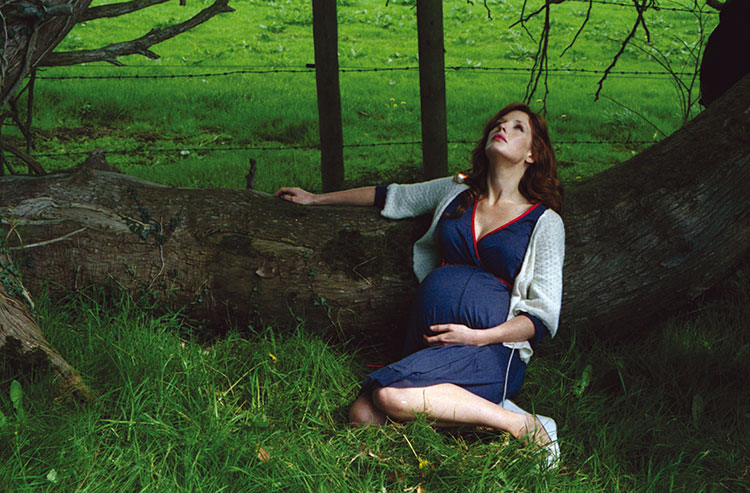
Potentially a fan’s only affair, Puffball employs Roeg’s requisite stock of frightening imagery in this deeply unsettling, supernatural-tinged tale of Liffey (Kelly Reilly), a young architect relocated to the bucolic Irish countryside with her fiancé Richard (Oscar Pearce) where she plans to refurbish and restore a long gone to waste cottage.
Unfortunately for Liffey, her ambition restoration dream home is the former abode of elderly Molly Tucker (Rita Tushingham), an eccentric neighbor who lives with her peculiar adult daughter Mabs (Miranda Richardson) – mother of three girls, but desperately wanting a son.
When Richard, an American, takes a trip back to his old haunts in NYC, Liffey learns she’s pregnant, which doesn’t sit at all well with Molly and Mabs. Certain that their family should be the ones to have a child, Molly and her brood, also occult dabblers, have no problem using black magic to upset Liffey’s pregnancy.
While certainly considered a minor work in Roeg’s canon, The Guardian’s Philip French accurately details the films as “a curious mixture of Straw Dogs and Rosemary’s Baby”, and if that descriptor piques your interest, be sure to see it.
11. Cold Heaven (1991)
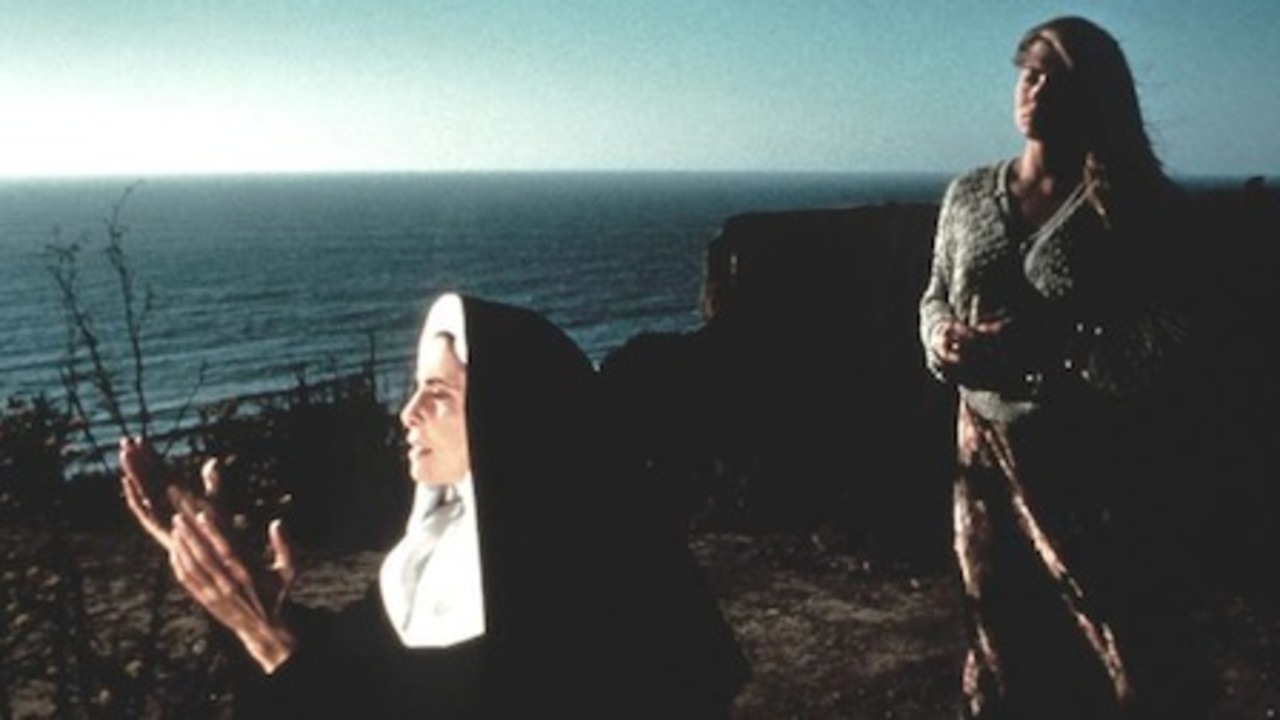
Northern Irish-Canadian writer Brian Moore’s 1983 novel “Cold Heaven” is the source material for this supernatural-infused thriller from Roeg (adapted for the screen by Allan Scott).
Alex (Mark Harmon) and Marie Davenport (Theresa Russell) are an unhappily married couple in Mexico for a medical conference/working vacay, where Marie is gathering the nerve to tell Alex that they’re through and that she will be leaving him to be with her lover, Daniel (James Russo).
Inexplicably (at least at first) haunted by an image of the Virgin Mary, Marie takes her time before revealing her intentions to Alex, and before she’s able to confess her affair he is involved in a boat accident. The events of which are so horrific and contradictory, they seem buoyed by the hand of God. With the aid of Sister Martha (Talia Shire) and Father Niles (Will Patton), Marie will, hopefully, ascertain the truth. Was it a miracle or something else?
Narratively sewed up, technically impressive, and never specific to any one genre, it’s also a film that’s been described, not surprisingly, as challenging and polarizing (like pretty much all of Roeg’s work).
“Cold Heaven starts out as a standard melodrama about adultery, continues as a head-scratching mystery thriller, takes a slow left turn into religious allegory, and winds up as a speculative and highly moral poem about marriage,” wrote noted film critic Jonathan Rosenbaum, adding; “Trying to squeeze this plot into a genre would almost constitute an act of violence against movie and audience alike.”
10. Track 29 (1988)
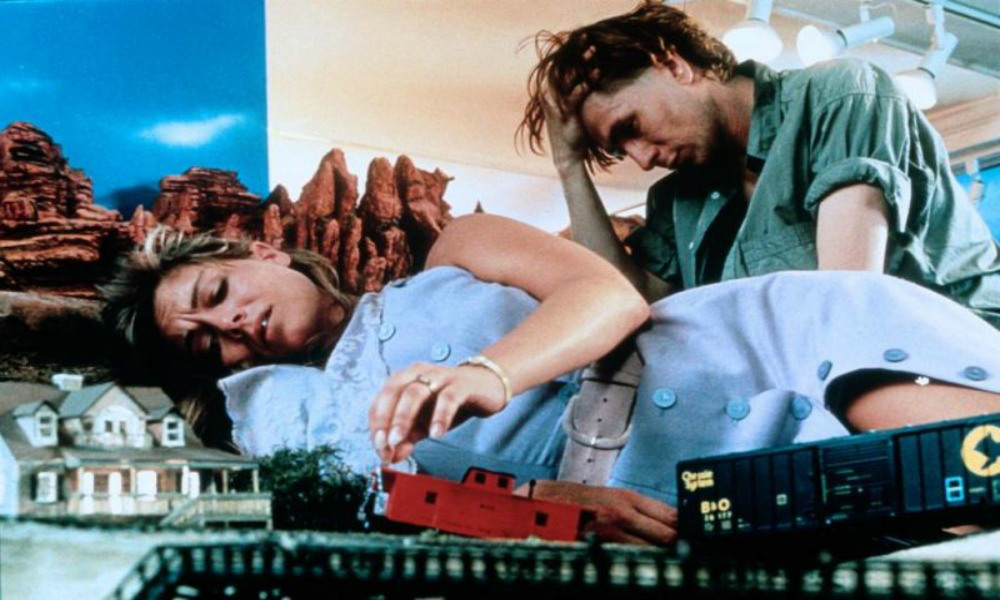
Another notable collaboration between Roeg and his then wife Theresa Russell is the somewhat scabrous Dennis Potter adaptation Track 29 –– itself a reworking of Potter’s 1974 television play, Schmoedipus. Relocating the action from London to North Carolina, Linda (Russell) is one day confronted by a young man named Martin (Gary Oldman), who claims to be her long-lost son.
Linda, deeply unhappy in her marriage to her ill-suited and unfaithful husband, Henry (Christopher Lloyd), she places her affections into Martin, whom she gave up for adoption years ago, when she was a desperate teenager. But a violent streak reveals itself in Martin, as does an unruly obsession Henry.
Track 29 deliberately confronts the viewer with kink, misogyny, and societal violence. It won’t sit well with its audience, nor is it supposed to. Tantalizing and perhaps tortuous, Track 29 will trouble you and turn in your mind for some time afterward, and that is the intent. In a conflicted and mixed review of the film Roger Ebert suggests that “…not every film is required to massage us with pleasure. Some are allowed to be abrasive and frustrating, to make us think.”
9. Castaway (1987)
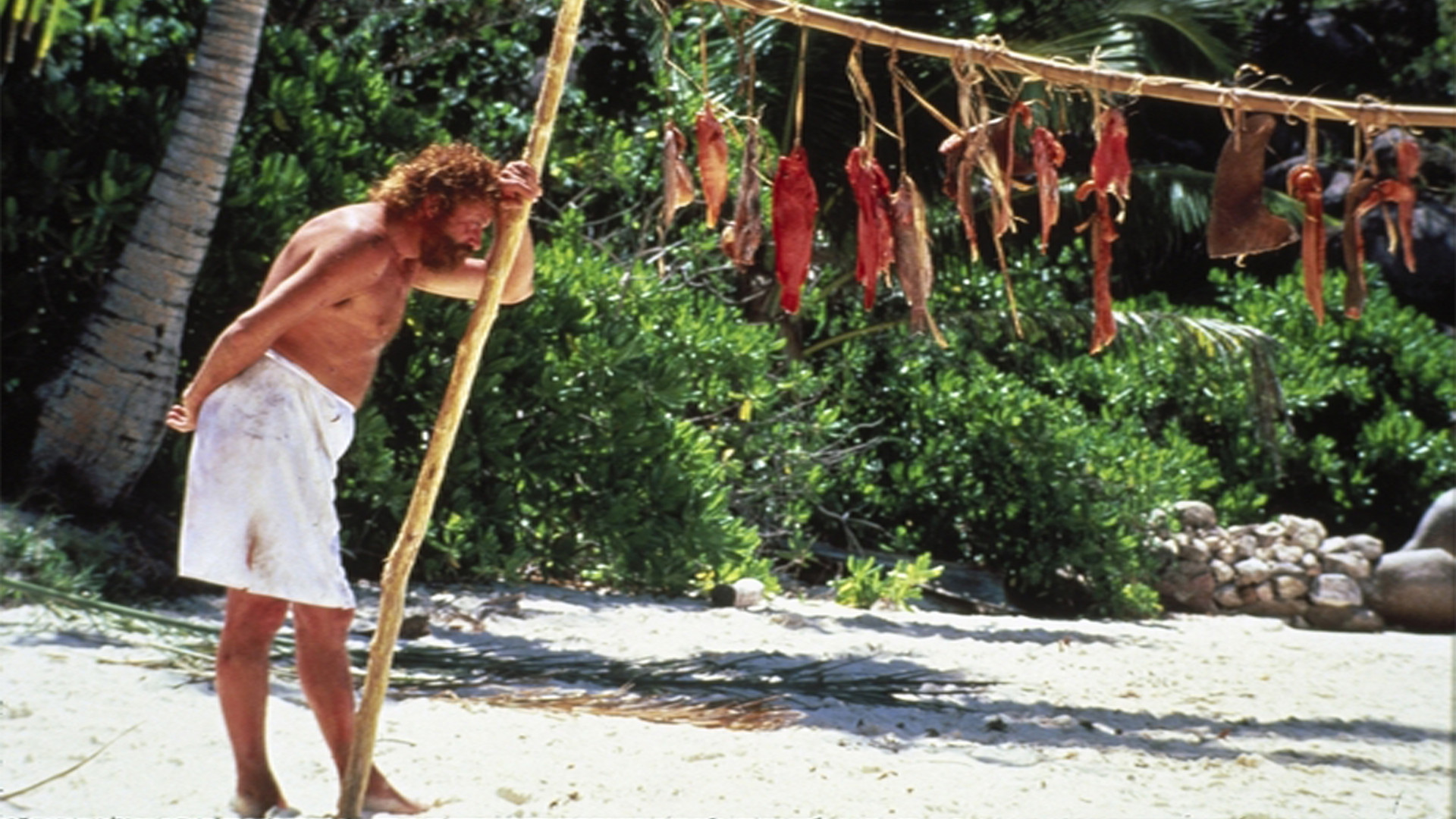
Famously adapted from Lucy Irvine’s 1984 book “Castaway”, which detailed her year spent on the isolated isle of Tuin (nestled in the Torres Strait, between Australia and New Guinea) with writer Gerald Kingsland, this inspired true story, is also Roeg’s most conventional and therefore easy to digest, drama.
Amanda Donohoe is Lucy, a London secretary who answers an ad and beats out over 50 other applicants to join the wealthy and reclusive middle-aged writer, Gerald (Oliver Reed) on a tropical isle and be his wife for one year.
Par for the course with Roeg in the director’s chair, the visuals are nothing short of mesmeric (particularly the underwater sequences) and do the exotic locations considerable justice. Donohoe and Reed are excellent in their roles, and watching as their personalities coalesce and also crash, and how that resonated in their emotional and mental states is astonishing to behold.
Unfairly ignored on its initial release, Castaway was denied a U.S. release, it’s not just a film from an auteur director unfairly shunned, but a brilliant turn from a notable cast. “Reed gives the performance of his career as a sexually frustrated middle-aged man in search of sun and sex,” wrote Variety at the time of the film’s original release, also adding that “[Reed] is admirably complemented by Amanda Donohoe as the determined but fickle object of his lust.”
Thanks to an elegantly restored 4K Blu-ray and DVD editions, Castaway can and should be appreciated anew by admirers of Roeg’s. Don’t miss it.
8. Bad Timing (1980)
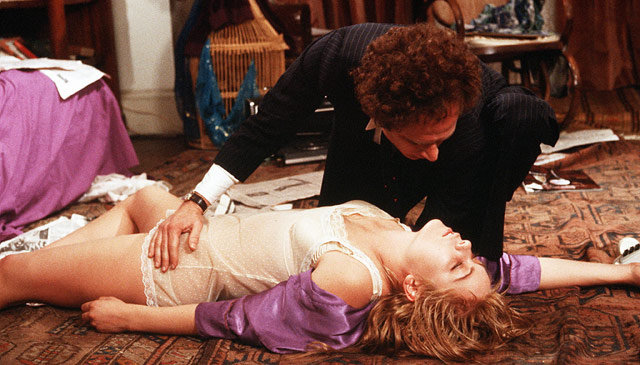
The scandalous, X-rated mini-epic Bad Timing (denounced unfairly as tasteless and misogynistic upon its original release) has been described by award-winning British author and cineaste Geoff Dyer “…as bonkers as it is beautiful”, and he’s not wrong.
Perhaps Roeg’s most polarizing film, it’s one that explores some very upsetting places as we get familiar with expat American psychiatrist Alex Linden (Art Garfunkel). Living in Vienna, and not a particularly likeable lad, Alex has a potentially dangerous, and certainly unhealthy sexual obsession with Milena (Theresa Russell), a married American woman with more than a few vices.
Also added to the jigsaw-puzzle-that’s-missing-a-few-pieces narrative is Harvey Keitel’s police inspector Netusil, a man convinced that Milena’s hospitalization isn’t as cut and dry as Alex has made it out to be, and this is illustrated via the detective’s fantasized replaying of what could have gone awry.
Told in Roeg’s atypical nonlinear fashion, Bad Timing may read as experimental arthouse inanity for non-fans or those not so adventurous. But Roeg takes pains to detail the voyeuristic psychoanalysis of a wronged relationship, as well as the wistful and lascivious elements of an affair; how despairing people still hold powerful passions, and how some actions are too horrible to be easily or ever forgiven.